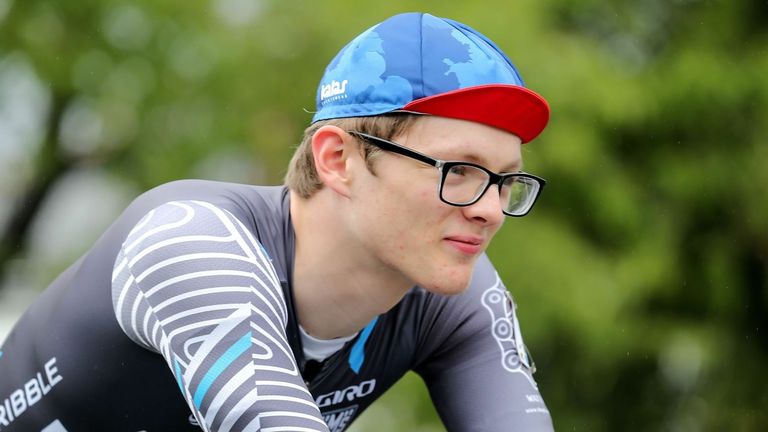
Transgender cyclist Emily Bridges says she is prepared to take British Cycling to court to fight its competition ban.
British Cycling’s policy bars transgender athletes from competing as women and created a new “open” category, while restricting the “female” category to those assigned female at birth and transgender men yet to begin hormone therapy.
Bridges, 23, condemned the policy when it came out last year and she has admitted she no longer thinks about competing in elite sport, saying “part of my life is gone now”.
“It’s not something I allow myself to think about too much because that part of my life is gone now, and it’s not something I really want to do anymore,” Bridges told ITV News.
“If we were allowed to compete, if I was allowed to compete, it would be a different conversation,” she added. “But I can’t compete, I can’t do something I used to love.”
British Cycling’s “open” category allows transgender women, transgender men, non-binary individuals and those whose sex was assigned male at birth to compete.
Bridges believes it would not feel safe to participate in the “open” category and expressed her concern that other transgender women may have to “out themselves” to compete in this category.
“Would it be safe for me to compete in an open category? For me, obviously I have a past in cycling, I have previous results and people have known me,” Bridges added.
“But for another trans woman who hasn’t competed in the past, if she’s trans but she is seen by the world as a cis woman, how is it fair to ask her to out herself and compete in an open category? That’s not fair, and it’s not safe either.”
Last spring, British Cycling joined other sporting bodies in restricting its female category to competitors who are born biologically female.
Bridges said the policy amounts to a ban from elite cycling, remaining adamant her human rights have been violated by British Cycling and says she is prepared to go to court to challenge the policy change.
“A ban is a ban. You can say you can compete in the open category, but we’re women – we should be able to race in the women’s category,” she said.
“I don’t care if I never compete again. It’s for other people who want to compete and it’s just about what’s right.”
Bridges, who came out as transgender in October 2020, previously set a junior men’s record in cycling.
She has participated in research to assess the fairness of trans women athletes with reduced testosterone levels competing with cisgender women led by Loughborough University.



